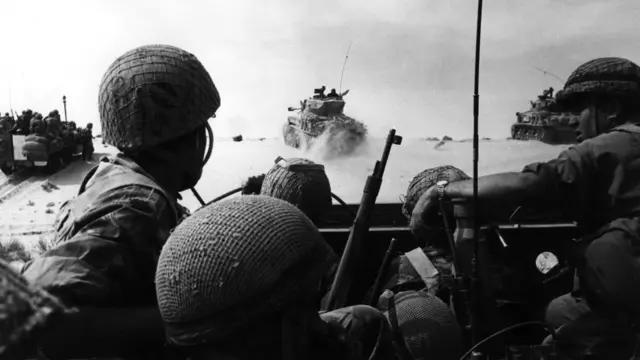War Ultimate Authority: 3 Key Powers Who Decide on War
A definitive yet elusive question, the authority to commit a nation to the crucible of war is a power vested not in a single entity but in a complex web of national constitutions, international laws, and evolving political norms. From the formal declarations of legislative bodies to the swift executive orders of commanders-in-chief, the decision to engage in armed conflict is a process marked by a delicate and often contentious balance of power.
At the heart of this issue lies a fundamental tension: the need for decisive action in the face of imminent threat versus the democratic principle of collective deliberation before embarking on a course of action with such profound consequences. This dichotomy is reflected in the diverse legal and constitutional frameworks that govern the initiation of warfare across the globe.
The Legislative Domain: A Check on Executive Power
In many democratic nations, the power to declare war is constitutionally entrusted, at least in part, to the legislative branch of government. This is a deliberate check on the executive, designed to ensure that the decision to go to war has broad political and public support.
The United States Constitution, for example, explicitly grants Congress the power “to declare War” in Article I, Section 8. This provision was intended by the framers to prevent a single individual from unilaterally plunging the nation into conflict. However, the modern reality is more nuanced. While Congress has formally declared war only 11 times in its history, most recently during World War II, the United States has engaged in numerous military conflicts through other means.
Presidents have increasingly relied on their authority as Commander-in-Chief to deploy military forces, often seeking congressional approval through Authorizations for the Use of Military Force (AUMFs). These AUMFs, while not formal declarations of war, provide a legal basis for military action and have been the primary vehicle for authorizing recent conflicts in the Middle East and elsewhere. This has led to a long-standing debate over the erosion of congressional war powers and the expansion of presidential authority.
Similarly, the United Kingdom operates under a system of royal prerogative, where the power to declare war and commit troops to armed conflict formally rests with the monarch, but in practice is exercised by the Prime Minister and the Cabinet. However, a strong constitutional convention has emerged that Parliament should have the opportunity to debate and vote on the decision to engage in military action. While not legally binding, this convention holds significant political weight, and governments that have bypassed Parliament have faced considerable criticism.
In France, the 1958 Constitution also establishes a shared responsibility. While the President is the commander-in-chief of the armed forces, Article 35 stipulates that “Parliament shall authorize the declaration of war.” For military interventions lasting longer than four months, the government must inform Parliament and can be requested to hold a vote, though this vote is not binding on the continuation of the intervention itself.
The Executive’s Prerogative: Decisiveness in a Dangerous World
In contrast to the deliberative nature of legislative bodies, the executive branch is often seen as better equipped to respond swiftly to immediate threats to national security. In many countries, the head of state or government holds significant authority in matters of defense and foreign policy.
In the Russian Federation, the President is the Supreme Commander-in-Chief of the Armed Forces and has the authority to use troops abroad with the approval of the Federation Council, the upper house of the Federal Assembly. This framework grants the executive substantial power in deploying military force.
The constitutional framework of the People’s Republic of China vests the power to declare war in the National People’s Congress (NPC) or its Standing Committee. However, the President, as the head of state and the Central Military Commission, holds significant practical authority over the armed forces and the decision-making process for military engagement.
In India, the President is the supreme commander of the armed forces and has the power to declare war or conclude peace. This power is exercised on the advice of the Prime Minister and the Union Council of Ministers. While Parliament’s approval is not constitutionally required for a declaration of war, it plays a crucial oversight role, particularly in approving the national budget and debating military matters.
Constitutional Constraints and Pacifist Traditions
Some nations have constitutional frameworks that place significant limitations on their ability to wage war, often as a direct result of their historical experiences.
Germany’s Basic Law, enacted after World War II, places strict conditions on the deployment of its armed forces (the Bundeswehr). The Bundeswehr is primarily a defensive force, and any deployment for purposes other than defense requires the explicit approval of the Bundestag, the German parliament.
Perhaps the most stringent constitutional constraint is found in Japan’s post-war constitution. Article 9 famously renounces war as a sovereign right of the nation and the threat or use of force as a means of settling international disputes.1 While Japan maintains a robust Self-Defense Force (SDF), its role has been strictly interpreted as for defensive purposes only. In recent years, there has been a significant national debate about reinterpreting or amending Article 9 to allow for a more proactive role in regional security.
The International Dimension: The Role of the United Nations
Beyond national legal frameworks, the decision to go to war is also governed by international law, primarily through the Charter of the United Nations. The UN Charter prohibits the threat or use of force in international relations, with two key exceptions: the inherent right of individual or collective self-defense if an armed attack occurs, and military action authorized by the UN Security Council.
The Security Council, composed of 15 member states, including five permanent members with veto power (China, France, Russia, the United Kingdom, and the United States),2 has the primary responsibility for maintaining international peace and security. Under Chapter VII of the UN Charter, the Council can authorize the use of force to “maintain or restore international peace and security.” This can range from sanctions and blockades to the deployment of multinational military forces.
However, the effectiveness of the Security Council is often hampered by the political interests of its permanent members, and the veto power can prevent collective action even in the face of mass atrocities or clear threats to peace.
The Evolving Nature of Warfare and Authorization
In the 21st century, the clear-cut distinction between war and peace has become increasingly blurred. The rise of non-state actors, such as terrorist organizations, and the advent of cyber warfare and other forms of hybrid conflict have challenged traditional notions of armed conflict and the legal frameworks designed to regulate it.
Formal declarations of war have become a rarity. Instead, nations are more likely to engage in “armed conflict” or “military operations” under various legal justifications, often without a formal declaration. This shift has significant implications for transparency, accountability, and the application of international humanitarian law.
Ultimately, the decision to commit a nation’s sons and daughters to the battlefield remains one of the most consequential choices a government can make. While the specific legal mechanisms may vary, the underlying principle of a deliberated and justified decision remains a cornerstone of responsible statecraft. The ongoing tension between executive expediency and legislative oversight, and the evolving landscape of international law, ensures that the question of who decides war will continue to be a subject of intense debate and scrutiny for generations to come.
Internal Links:
- The Role of International Law in Modern Conflicts
- Checks and Balances in a Democracy
- The Shifting Landscape of Global Security
External Links:
- The United Nations and the Use of Force
- The Geneva Conventions and the Laws of War
- Council on Foreign Relations: War Powers
Check out our latest posts !
Click Here !



Pingback: Artificial Universal Blood : The Dawn of a New Era in 2025 The Incredible Promise - upcorehub.com